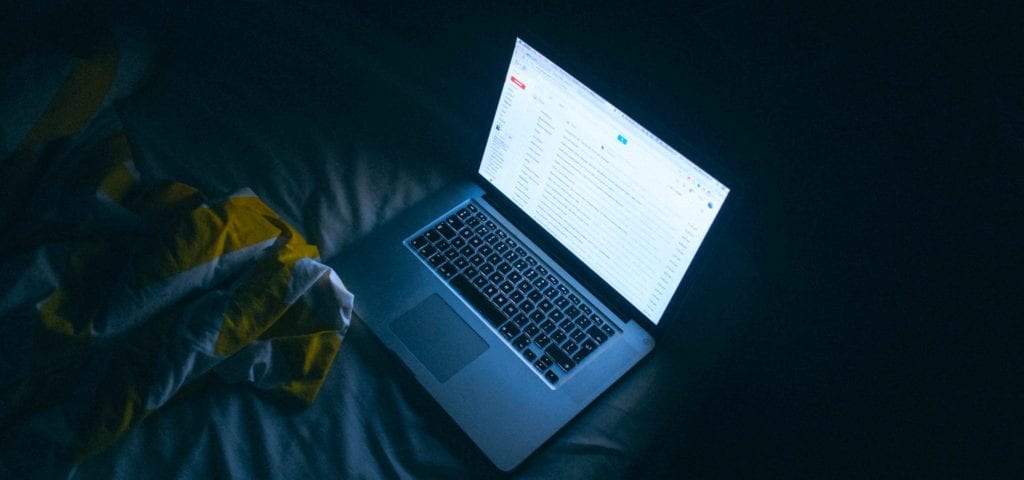Technology Shapes the Way We Sleep
We live in a society that is eternally connected. We can talk to our friends around the globe any time we want. Our bosses can reach out to us with updates about projects long after we’ve left the office. We can tap into a literally infinite list of reading material whenever we feel like it. All of this is great news, but these developments are, biologically speaking, radical and new. Our bodies developed in a very different time, and many of the factors that drive sleep regulation are now heavily modified by our use of technology.

An always connected world has changed our sleeping habits, and its not getting any better.
Melatonin Suppression
Melatonin is one of the most important hormones in regulating your body’s ability to sleep. Its production is also drastically affected by how much light you’re surrounded by. Being around lots of light (especially blue light, like most screens produce), is a quick way to inhibit your body’s natural production of melatonin. Studies have shown that being surrounded by light thirty minutes before bed-time can inhibit melatonin levels by as much as 50%. Essentially, artificial light has a way of tricking your body into staying in “daytime mode,” which prevents you from feeling tired even if you definitely need rest. This is one of the ways technology can be especially dangerous to your sleep cycle: we often don’t even realize we’re tired until we’re well past our bedtimes.
Excessive Engagement
Technology has all but eliminated the concept of true mental “downtime.” Unless you go out of your way to meditate, you’re constantly surrounded by things which are, theoretically, worthy of your full attention. Your commute becomes an opportunity to read up on the injustices taking place in Syria, you’re checking your email every hour or more, and, if you’re like many Americans, you engage with your technology all the way until you feel ready to sleep.
The trouble is, feeding your brain stimulating material soon before bed keeps it awake longer. Most brains aren’t capable of going from fully alert to unconscious in a short span of time. If they do it at all, it’s usually in response to total exhaustion, which is very unhealthy. If you’re getting less than seven hours of rest a night, citing that you don’t “feel” tired while you’re in front of your phone or computer until late at night, you might be fooling yourself. It’s not that you don’t need rest, it’s that you keep giving yourself engaging (and bright) material that suppresses the urge to sleep. Then, you don’t even feel tired until you’re well past the point where you need to be sleeping!
Remember, sleep disruption comes with a host of consequences that affect the quality of your everyday life. Though you may be acclimated to limited sleep, studies have shown over and over again that people who sleep more regularly and who sleep as much as they need to are happier, more energetic, and more productive in general!
Methodist Continuing Care
Sleep Lab
701 S. Fry Rd.
Suite 225
Katy Texas 77450
© 2023 The Respire Institute – Pulmonary and Sleep Disorders. All Rights Reserved The Respire Institute – Pulmonary & Sleep Medicine
West Houston & Katy Area
Advanced Respiratory Care Center
Primary Clinic and Pulmonary Rehabilitation Center
Methodist West Professional Building 2
18300 Katy Fwy Suite 615
Houston, Texas 77094
West Houston & Katy Area
Advanced Respiratory Care Center
Primary Clinic and Pulmonary Rehabilitation Center
Methodist West Professional Building 2
18300 Katy Fwy Suite 615
Houston, Texas 77094
Memorial West
Sleep Lab
10 Medical Plaza
10837 Katy Freeway,
Suite 250
Houston, TX 77079
contact information
Contact Us
Careers
Marketing & Partnerships
Patient Resources
Join a Research Study
New Patient Packet
Patient Portal
Provider Resources
Sleep Study Referral Form
Meet our Doctors
Referral Form
